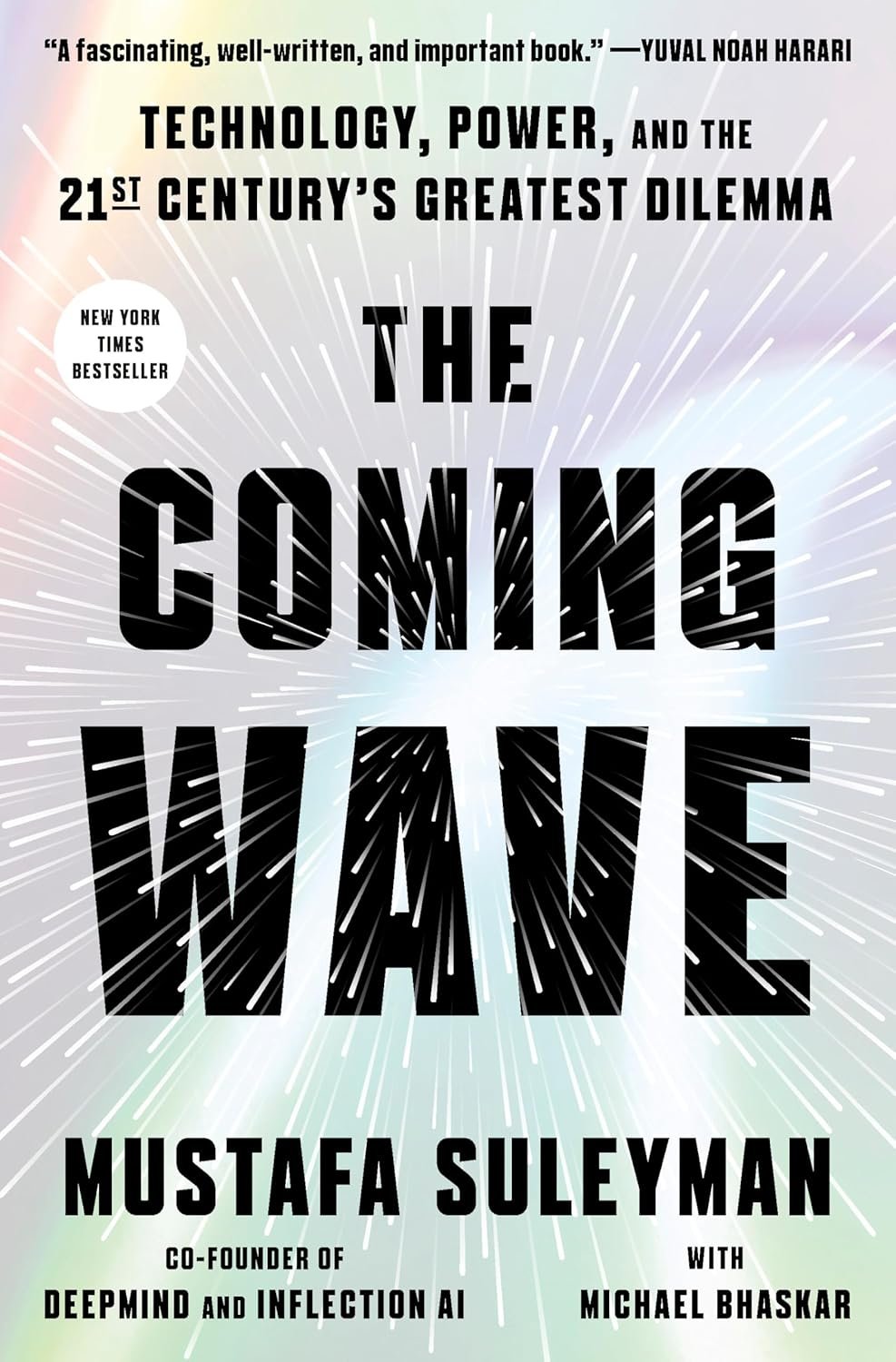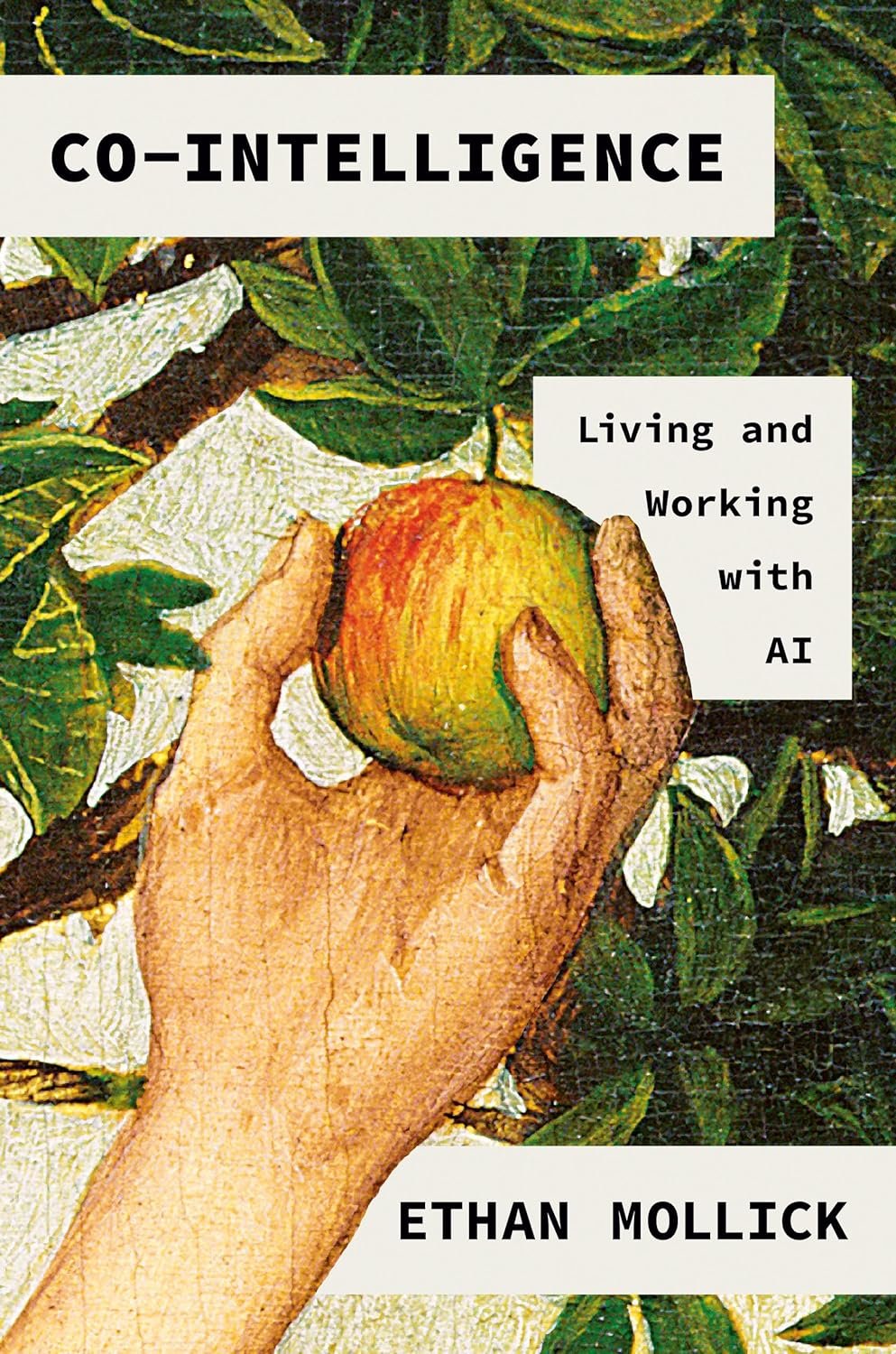With AI rapidly transforming how we live, work, and think, I set out to better understand its intricacies by reading about two dozens of books spanning a wide spectrum of perspectives—technical, philosophical, historical, and societal. Each book added a new layer to my understanding, from the mechanics of machine learning to the profound ethical dilemmas posed by autonomous systems.
After this deep dive, I’ve realized that no single book can encapsulate the vast scope of AI. However, certain titles stand out for their ability to inform, challenge, and inspire. Today, I’m excited to share my top five recommendations—each one offering a unique lens on this transformative field. Whether you want to understand the basics, explore AI’s historical context, reflect on its philosophical implications, or consider its future impact on society, there’s something here for everyone. These books represent the breadth of AI and the depth of thought and creativity shaping its story. Let’s dive in.

Summary
AI Literacy Fundamentals is perfect for absolute beginners, offering a clear and approachable introduction to core concepts, while Co-Intelligence explores how humans and AI can work together effectively, emphasizing collaboration, trust, and ethical design—ideal for professionals adapting to an AI-driven world. For futurists and visionaries, Ray Kurzweil’s The Singularity Is Nearer explores bold predictions about humanity’s potential merging with AI, though its speculative tone may not suit skeptics. Mustafa Suleyman’s The Coming Wave dives into the ethical and governance challenges of emerging technologies, making it essential for policymakers and leaders. Finally, Genesis takes a philosophical and hopeful approach, reflecting on how AI can amplify the human spirit, resonating deeply with those who value humanity’s role in shaping AI’s future.
For a logical progression, start with AI Literacy Fundamentals to build foundational knowledge, then explore the philosophical and societal implications through Genesis. Advance to The Coming Wave for a nuanced discussion of governance, and conclude with The Singularity Is Nearer to envision the long-term possibilities. If I had to pick just one, Genesis stands out for its unique blend of science, philosophy, and optimism, offering a balanced and inspiring view of what AI means for humanity.
| Criteria | AI Literacy Fundamentals | The Singularity Is Nearer | The Coming Wave | Genesis | Co-Intelligence |
|---|---|---|---|---|---|
| Clarity and Accessibility | 1.80 | 1.40 | 1.60 | 1.80 | 1.60 |
| Depth and Technicality | 1.00 | 1.60 | 1.60 | 1.40 | 1.20 |
| Relevance and Practicality | 1.40 | 1.40 | 2.00 | 1.60 | 1.60 |
| Breadth of Perspective | 0.90 | 1.05 | 1.20 | 1.35 | 1.20 |
| Originality and Insight | 0.75 | 1.35 | 1.20 | 1.35 | 1.05 |
| Engagement and Readability | 0.40 | 0.30 | 0.45 | 0.45 | 0.40 |
| Ethical and Societal Insights | 0.35 | 0.30 | 0.45 | 0.50 | 0.45 |
| 6.6/10 | 7.4/10 | 8.5/10 | 8.4/10 | 7.5/10 |
1. AI Literacy Fundamentals: Helping You Join the AI Conversation (2023)

“When I first picked up this book, I wasn’t expecting it to simplify AI so effectively. By the end, I felt equipped to confidently discuss artificial intelligence at a dinner party or a professional meeting.”
“I can’t think of a better written and more thoroughly researched introduction to the fundamental concepts of AI Literacy than Ben’s wonderful book. I cannot recommend it enough. Read. Be inspired. Be ready for our changing world.” –James Wilson, author of Artificial Negligence
This book acts as a bridge for people who feel alienated by the jargon-heavy world of AI. It introduces key concepts like machine learning, neural networks, and ethical dilemmas in an accessible, conversational tone. The author does an excellent job of presenting real-world applications without overwhelming the reader with unnecessary technicalities.
I appreciated how relatable the examples were—ranging from everyday tech like smart assistants to broader issues like bias in AI systems. The chapters flow logically, starting with foundational ideas and gradually introducing more complex topics. However, as someone with a basic understanding of AI, I found the book too surface-level at times, lacking depth in areas like technical architecture or cutting-edge applications.
Still, I’d wholeheartedly recommend this book to anyone starting their journey into AI. It’s not for advanced readers, but it succeeds in making the subject approachable. For newcomers, it’s an invaluable resource to build confidence and join conversations about this rapidly evolving field.
2. Genesis: Artificial Intelligence, Hope, and the Human Spirit (2024)

“This book is not just about AI; it’s about what it means to be human in an era of rapid technological transformation. It’s a rare combination of science, philosophy, and optimism.”
“A profound exploration of how we can protect human dignity and values in an era of autonomous machins”—Walter Isaacson
Genesis takes a refreshing approach to the topic of artificial intelligence by focusing on its intersection with humanity’s deeper values—hope, creativity, and the resilience of the human spirit. The author blends technical insights with reflections on what AI means for our shared future, offering a narrative that feels both thought-provoking and uplifting.
What struck me most was how the book doesn’t shy away from exploring the ethical and existential challenges posed by AI, yet it remains grounded in a sense of optimism. It argues that AI, far from replacing us, can amplify our best qualities when used responsibly. The writing is beautifully balanced, alternating between inspiring stories, philosophical musings, and practical considerations for how AI can coexist with human flourishing.
While I enjoyed the book’s overarching themes, some sections felt overly abstract, leaving me wanting more concrete examples of AI applications aligned with the human values it champions. Still, its hopeful tone and focus on humanity’s role in shaping AI’s trajectory make it stand out in the crowded field of AI literature.
I would recommend Genesis to anyone looking for a more philosophical take on AI—especially readers who want to explore how this technology can support, rather than threaten, what it means to be human. It’s an inspiring read that reminds us the future of AI is still ours to shape.
3. The Singularity Is Nearer: When We Merge with AI (2023)

“Ray Kurzweil’s vision of the future is as thrilling as it is unsettling. Reading this book felt like staring into a crystal ball, filled with both promise and uncertainty.”
“Ray Kurzweil is the best person I know at predicting the future of artificial intelligence.”
—Bill Gates“Ray Kurzweil is the greatest oracle of our digital age. The Singularity Is Nearer is more than just a book—it’s a survival guide for the technological renaissance we’re about to experience. Ray’s accurate projections of what is likely to happen and when, makes the difference between surfing atop the tsunami of change, versus being crushed by it.”
—Peter H. Diamandis, MD, New York Times Bestselling author, Founder, XPRIZE, Singularity
Building on his earlier work, Kurzweil dives into the idea of the technological singularity, a moment when AI surpasses human intelligence and fundamentally changes our existence. What I admire most is his optimism—he sees AI as an extension of humanity, a way to overcome our biological limitations and unlock unimaginable potential. The book is brimming with predictions about biotechnology, nanotechnology, and AI advancements, often weaving them into a grand narrative about humanity’s destiny.
At times, however, I found his enthusiasm overwhelming. His projections about timelines and breakthroughs can feel overly ambitious, bordering on speculative fiction. While the book is visionary, it rarely pauses to critically evaluate the potential risks or counterarguments to his ideas.
Despite these flaws, The Singularity Is Nearer remains a must-read for anyone fascinated by the intersection of AI, philosophy, and futurism. It’s not just a book; it’s an invitation to imagine what humanity could become in the decades to come.
4. The Coming Wave: Technology, Power, and the Twenty-First Century’s Greatest Dilemma (2023)

“This book felt like a wake-up call—a reminder that the technological revolution we’re living through isn’t just about innovation; it’s about power, responsibility, and the choices we make now.”
“A fascinating, well-written, and important book.”—Yuval Noah Harari
“Essential reading.”—Daniel Kahneman
“My favorite book on AI.”—Bill Gates, GatesNotes
Mustafa Suleyman tackles some of the most urgent questions of our time: how do we harness the benefits of AI and emerging technologies while minimizing their risks? His writing is clear and compelling, blending real-world examples with thoughtful policy suggestions. What struck me most was his emphasis on governance—he argues that innovation without oversight is a recipe for disaster.
The book explores the dual nature of technologies like AI and synthetic biology, which can either empower societies or destabilize them. I appreciated how Suleyman didn’t shy away from tough topics, like the ethical dilemmas of AI in warfare or its potential to entrench inequality. At the same time, some of his proposed solutions, while well-intentioned, felt too idealistic or underdeveloped.
For anyone interested in the future of technology and its societal impact, The Coming Wave is a must-read. It’s especially relevant for policymakers, business leaders, and thoughtful citizens who want to understand the stakes of the decisions being made today.
5. Co-Intelligence: Living and Working with AI (2024)

“As I read this book, I couldn’t help but reflect on my own interactions with AI, from virtual assistants to workplace tools. It made me think: how can we work with AI, rather than just use it?”
“In today’s cacophony of ‘AI hot takes’, Mollick has distinguished himself as the leading voice of reason on the implications of AI for work and education. Anyone seeking a basis of practical knowledge to understand the coming massive changes should read this insightful book right now.”
— Reid Hoffman, Co-Founder of LinkedIn and Inflection AI
This book focuses on the concept of co-intelligence, where humans and AI collaborate to achieve goals neither could accomplish alone. I appreciated how the author approached AI as a partner rather than a tool, emphasizing trust, synergy, and the importance of ethical design. The book offers practical advice for integrating AI into daily life and work, whether you’re a professional, a team leader, or just someone curious about how AI can augment human potential.
What stood out to me were the real-world scenarios illustrating how AI can enhance decision-making and creativity. However, I found myself wishing for more detailed case studies or examples of successful implementation. The ideas are sound, but the lack of concrete applications makes them feel somewhat abstract.
Still, Co-Intelligence is an insightful read for anyone navigating an increasingly AI-driven world. It’s not just about understanding AI—it’s about learning how to live and work alongside it effectively.
What is your favorite AI-related book? Please share your thoughts in the comments and/or contact me.



